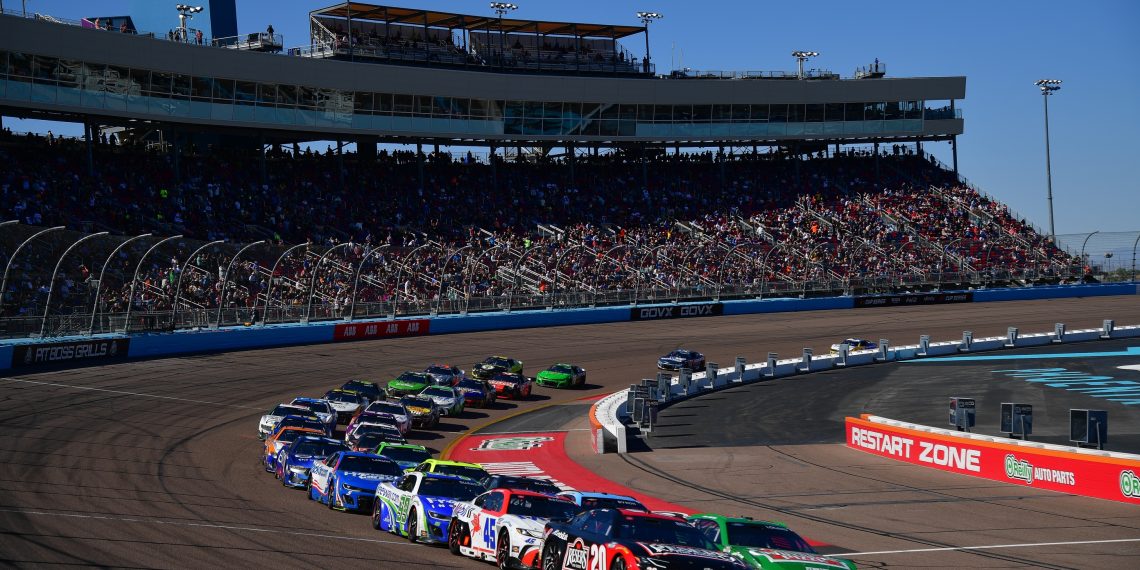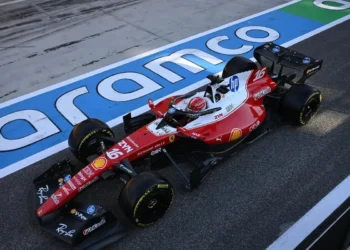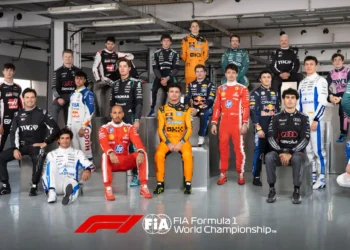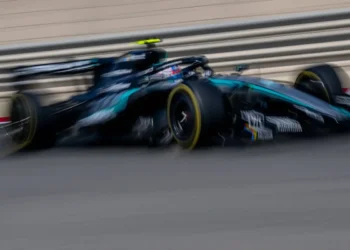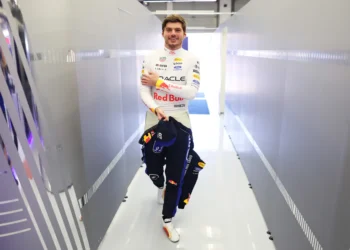In the midst of the legal wrangle between NASCAR and basketball icon Michael Jordan, along with Denny Hamlin, Kyle Larson’s High Limit Racing (HLR) has come into focus for a different reason. Larson, co-owner of the sprint car racing series, has recently unveiled a lucrative surprise – an $18 million franchise system. This move sets HLR apart from the controversial charter system pursued by NASCAR, which is currently under legal scrutiny.
Larson’s HLR, a fast-growing racing series, was initiated in 2022. It has experienced a meteoric rise since its inception, leaping from hosting 11 races in 2023 to an impressive 61 races scheduled for the 2025 season. The series is set to feature full-time sprint car stars such as co-owner Brad Sweet, Tanner Thorson, Rico Abreu, and Tyler Courtney, who will compete on 15 new racetracks.
In line with this growth, Larson has introduced a franchise system for HLR. Instead of following NASCAR’s embattled charter model, Larson’s franchise approach aims to tap into the flourishing potential of his sport. Starting in 2026, the franchises, which will be permanent, will collectively compete for up to $18 million in total value over the next four years. This figure will start at $3.9 million in 2026, gradually increasing to over $5 million by 2029.
This initiative is designed to establish a sustainable business model for HLR’s race teams. The first franchises will be awarded to the top five finishers in the 2024 championship standings. The recipients include Kasey Kahne Racing (No. 49), Clauson-Marshall Racing (No. 7BC), Rico Abreu Racing (No. 24), Roth Motorsports (No. 83), and Murray-Marks Motorsports (No. 19). Five additional franchises will be granted at the end of the 2025 Kubota High Limit Racing season.
By adopting the term ‘franchise’, Larson is consciously distancing his series from NASCAR’s approach. Moreover, he is coupling the growth of HLR with an influx of NASCAR talent. The series, kicking off its 2025 schedule at Las Vegas Motor Speedway, has already attracted big names from the NASCAR Cup Series, including Christopher Bell and Ty Gibbs.
Bell, who recently achieved an unprecedented three-peat victory in the Next-Gen era, has had several head-to-head battles with Larson in dirt racing. Both Bell and Gibbs, his teammate, have three Chili Bowl wins each. Gibbs is also planning to make his debut in sprint car racing as part of his expanded dirt schedule for 2025.
HLR’s success can be attributed to the dedicated efforts of Brad Sweet, Larson’s brother-in-law, and co-owner of HLR. Sweet has worked tirelessly on scheduling races, a task Larson acknowledges as one of the most challenging aspects of running a series.
Larson’s HLR is flying high without any ‘high limits’. As the series continues to ascend, Larson has demonstrated that he can run a successful racing series without emulating NASCAR. This is particularly notable given the ongoing lawsuit involving NASCAR and Jordan’s 23XI Racing. While the court battle continues to simmer, Larson’s HLR is embracing growth and prosperity.

